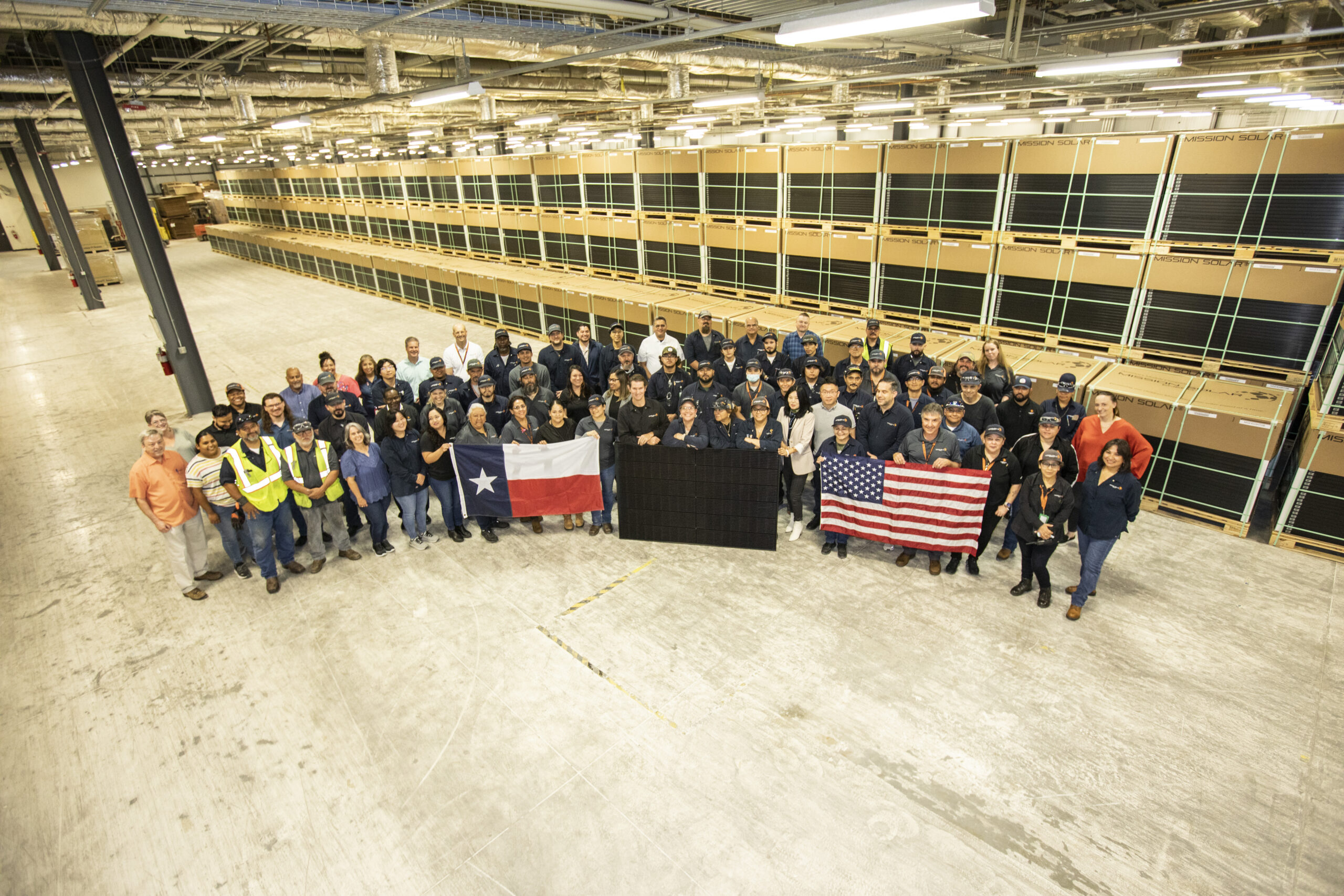The Buy American Act (BAA) and Build America, Buy America Act (BABAA) were put in place by the U.S. government to support American jobs, keep tax dollars in the country, and ensure high standards for environmental and workplace safety regulations. Since the laws have similar names but different requirements, so understanding the rules can be tricky.
What Is the Buy American Act?
The Buy American Act (BAA), passed in 1933, is the main law requiring the federal government to prefer U.S.- made goods. In general, the BAA establishes a price preference for federal agencies’ purchases of “domestic end products” to be used in the United States. The BAA statute typically applies a two-part test in order to define a “domestic end product”, although requirements can vary based on whether the product is manufactured or unmanufactured, or consists wholly or predominantly of iron, steel, or a combination of both.
Because Mission Solar’s 410W modules are manufactured in the United States and are commercially available off-the-shelf items, they meet the BAA requirements of a domestic end product.
“Buy America” is a set of domestic content preferences tied to federal grants and funding for infrastructure projects. Each federal agency, like the Federal Highway Administration (FHWA) or Federal Transit Administration (FTA), has its own set of rules under Buy America. These requirements are separate from the BAA.
Build America, Buy America Act (BABAA)
Enacted in 2021 as part of the Infrastructure Investment and Jobs Act, the BABAA expands Buy America rules to all federal grants for infrastructure.
Key Requirements:
- Iron, steel, construction materials, and manufactured products must be made in the U.S.
- At least 55% of the total cost of a product’s components must come from materials made in the U.S.
Unlike the BAA, BABAA does not waive the cost-of-components test for commercially available off-the-shelf (COTS) products. This means that if a product doesn’t meet the 55% threshold, it won’t qualify under BABAA.
How These Laws Impact the U.S. Solar Industry
The solar industry faces challenges meeting BABAA’s strict rules due to limited sourcing options in the U.S. Building a complete domestic supply chain takes time—factories must be built, equipment installed, and processes refined.
Despite these challenges, Mission Solar Energy has been committed to American manufacturing since 2014. Our San Antonio, Texas facility produces high-quality solar modules, supporting U.S. jobs and innovation.
Where to Learn More
For additional information, check out:
- The Made in America Office for details on the Buy American Act and Buy America laws.
- The Office of Management and Budget (OMB) for Build America, Buy America Act guidance.
Disclaimer
This article is for general information only. It’s not legal advice. If you have questions about specific rules, consult the federal agency handling the purchase or grant.


